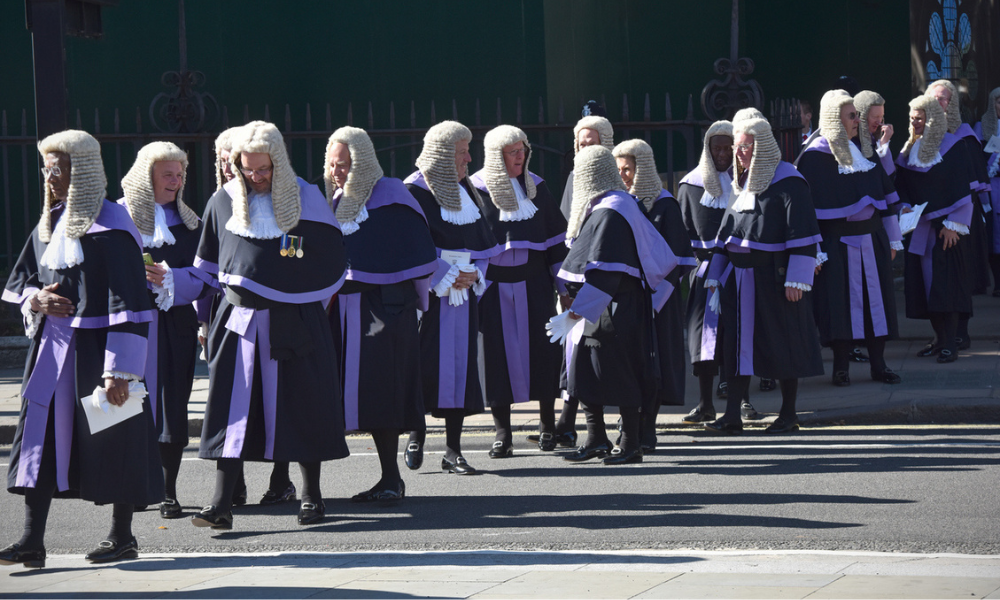The Ontario Court of Appeal says consumers don’t have to establish reliance on a false, misleading, or deceptive representation when claiming a breach under the Consumer Protection Act section that prohibits “unfair practices” in consumer transactions.
In Ramdath v. George Brown College, students who had enrolled in the school’s international business management program in 2007 and 2008 started a class action against the college for representations it made in its course calendar. It described the program as giving students the “opportunity to complete three industry designations/certifications.”
There were about 120 students taking the classes. Two-thirds were foreign students — from India, China, Japan, Turkey, Brazil, Russia, South Korea, Syria, Thailand, and Mexico. The domestic students paid about $3,000 in tuition fees for the eight-month program; the foreign students paid just under $11,000.
However, upon graduating the students did not automatically receive the designations they felt they had earned and were not automatically eligible to write the industry exams necessary to obtain the designations. That’s because George Brown had no agreements in place with the industry associations that awarded the designations.
The students learned they would have had to apply separately to each industry association and, in addition to writing the exam and paying a sometimes hefty fee, would be required to take additional courses and/or submit proof of work experience.
The students claimed they would not have enrolled in the program but for the college’s “representation” that, upon completion, the students would obtain the three designations.
They claimed against George Brown as consumers defined in the Consumer Protection Act as individuals “acting for personal, family, or household purposes” and not including persons “acting for business purposes.”
The student class members claimed for breach of Part III of the CPA, which creates civil liability for unfair practices, being “a false, misleading or deceptive representation” in a consumer transaction.
The Superior Court found in favour of the students but George Brown appealed, arguing the students weren’t consumers as defined in the CPA, and each student would have to prove reliance on the college’s misrepresentation before being entitled to any remedy.
The appeal court decision in the student’s favour “gives hope to persons who do plaintiffs work,” says Alan Farrer, managing partner with Thomson Rogers. “Certainly they took a broad and reasonable interpretation of the statute. It’s a remedial statute and they decided to look at it with that in mind. The argument wasn’t that strong that they wouldn’t have been consumers.”
The students were asked by the college to prove reasonable reliance on the misrepresentation and Farrer says the court “gave a more liberal interpretation of the statute” simply saying once someone finds there has been an unfair practice the person aggrieved is entitled to a remedy including damages.
The question of individual damages will be determined when each member of the class individually proves their own damages.
In a bulletin issued last week, Blake Cassels & Graydon LLP noted: “We can expect to see more consumer protection class actions as a result of this action.”
Farrer says he’s not sure the decision will lead to more Consumer Protection Act cases, but if the defendant’s arguments prevailed it would have created a notion not everyone can be a consumer and there is a hurdle that has to be passed before considering entitlement to damages and they didn’t do that.
“I guess it’s a simpler path now to recovery for people against whom there have been unfair business practices,” he says.
Ramdath is a significant case says Michael Rosenberg, of McCarthy Tétrault LLP, because it “turns the tide on misrepresentation class actions.”
He says a “chill had descended” following Justice Warren Winkler’s decision in Mouhteros v. DeVry Canada Inc., which suggested these kind of claims would give rise to insurmountable individual issues.
“The thaw began in 2006 with the Court of Appeal’s decision in Hickey-Button v. Loyalist College of Applied Arts and Technology, and it culminated in Ramdath,” he says.
The conclusion that damages will lie without proof of reliance demonstrates the power of the statutory cause of action, says Rosenberg.
At trial, Justice Edward Belobaba found the students were entitled to the amount by which their tuition fees exceeded the value of the educational program they received.
“It’s worthwhile to note that the common issues trial in Ramdath did not produce an award of damages for the plaintiffs, which underscores the fact that the claim in misrepresentation may still give rise to lingering individual issues. This is particularly true of the common law claim. Where the auspices of the Consumer Protection Act cannot be invoked, there’s still no easy pot of gold in misrepresentation,” he said.
In Ramdath v. George Brown College, students who had enrolled in the school’s international business management program in 2007 and 2008 started a class action against the college for representations it made in its course calendar. It described the program as giving students the “opportunity to complete three industry designations/certifications.”
There were about 120 students taking the classes. Two-thirds were foreign students — from India, China, Japan, Turkey, Brazil, Russia, South Korea, Syria, Thailand, and Mexico. The domestic students paid about $3,000 in tuition fees for the eight-month program; the foreign students paid just under $11,000.
However, upon graduating the students did not automatically receive the designations they felt they had earned and were not automatically eligible to write the industry exams necessary to obtain the designations. That’s because George Brown had no agreements in place with the industry associations that awarded the designations.
The students learned they would have had to apply separately to each industry association and, in addition to writing the exam and paying a sometimes hefty fee, would be required to take additional courses and/or submit proof of work experience.
The students claimed they would not have enrolled in the program but for the college’s “representation” that, upon completion, the students would obtain the three designations.
They claimed against George Brown as consumers defined in the Consumer Protection Act as individuals “acting for personal, family, or household purposes” and not including persons “acting for business purposes.”
The student class members claimed for breach of Part III of the CPA, which creates civil liability for unfair practices, being “a false, misleading or deceptive representation” in a consumer transaction.
The Superior Court found in favour of the students but George Brown appealed, arguing the students weren’t consumers as defined in the CPA, and each student would have to prove reliance on the college’s misrepresentation before being entitled to any remedy.
The appeal court decision in the student’s favour “gives hope to persons who do plaintiffs work,” says Alan Farrer, managing partner with Thomson Rogers. “Certainly they took a broad and reasonable interpretation of the statute. It’s a remedial statute and they decided to look at it with that in mind. The argument wasn’t that strong that they wouldn’t have been consumers.”
The students were asked by the college to prove reasonable reliance on the misrepresentation and Farrer says the court “gave a more liberal interpretation of the statute” simply saying once someone finds there has been an unfair practice the person aggrieved is entitled to a remedy including damages.
The question of individual damages will be determined when each member of the class individually proves their own damages.
In a bulletin issued last week, Blake Cassels & Graydon LLP noted: “We can expect to see more consumer protection class actions as a result of this action.”
Farrer says he’s not sure the decision will lead to more Consumer Protection Act cases, but if the defendant’s arguments prevailed it would have created a notion not everyone can be a consumer and there is a hurdle that has to be passed before considering entitlement to damages and they didn’t do that.
“I guess it’s a simpler path now to recovery for people against whom there have been unfair business practices,” he says.
Ramdath is a significant case says Michael Rosenberg, of McCarthy Tétrault LLP, because it “turns the tide on misrepresentation class actions.”
He says a “chill had descended” following Justice Warren Winkler’s decision in Mouhteros v. DeVry Canada Inc., which suggested these kind of claims would give rise to insurmountable individual issues.
“The thaw began in 2006 with the Court of Appeal’s decision in Hickey-Button v. Loyalist College of Applied Arts and Technology, and it culminated in Ramdath,” he says.
The conclusion that damages will lie without proof of reliance demonstrates the power of the statutory cause of action, says Rosenberg.
At trial, Justice Edward Belobaba found the students were entitled to the amount by which their tuition fees exceeded the value of the educational program they received.
“It’s worthwhile to note that the common issues trial in Ramdath did not produce an award of damages for the plaintiffs, which underscores the fact that the claim in misrepresentation may still give rise to lingering individual issues. This is particularly true of the common law claim. Where the auspices of the Consumer Protection Act cannot be invoked, there’s still no easy pot of gold in misrepresentation,” he said.







